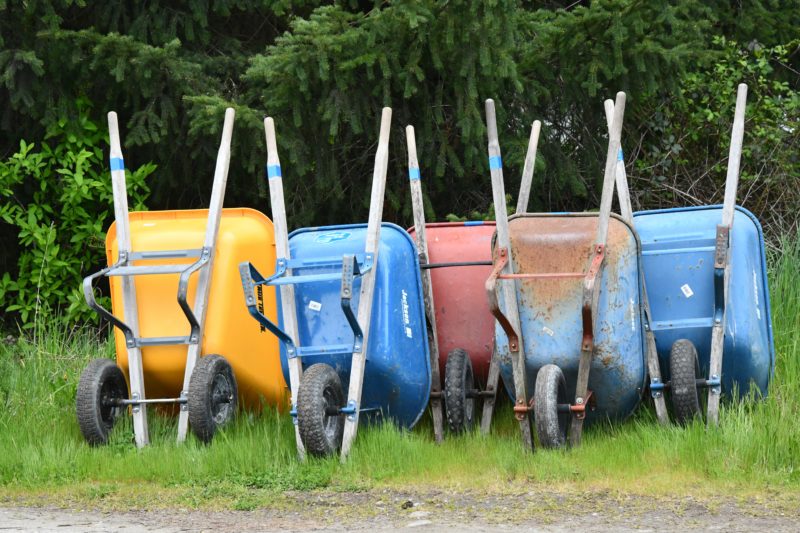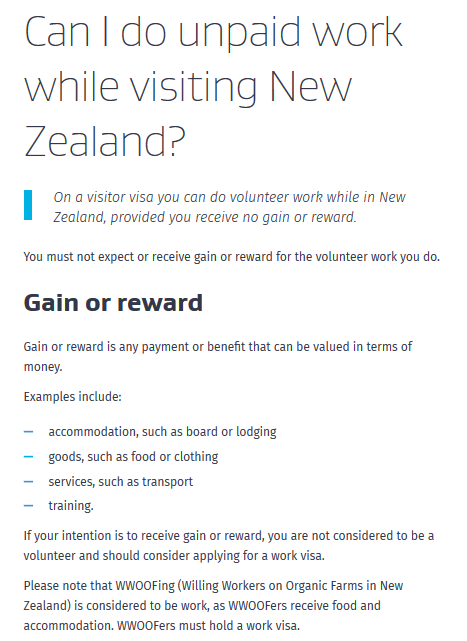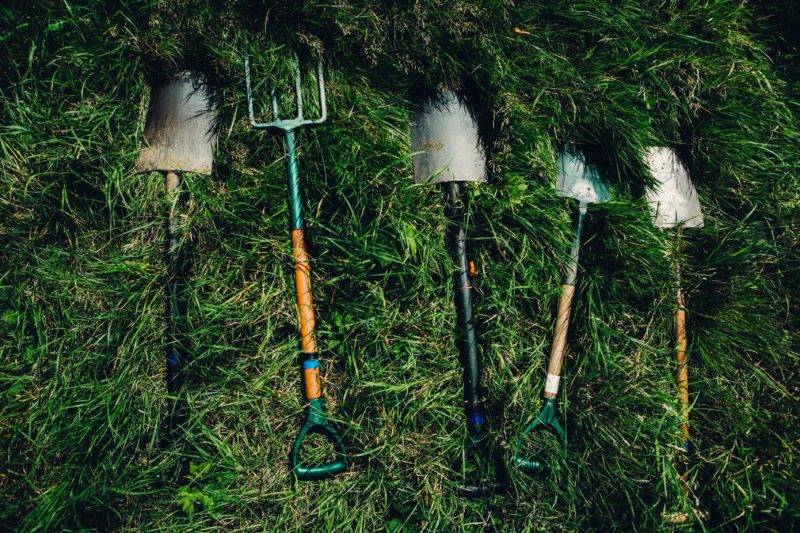When may I do wwoofing in New Zealand and what should I know
The topic Wwoofing is also very popular in New Zealand. The term hides working a few hours a day; in return, you get free accommodation and meals. Originally, the word Wwoofing comes from the word “World-Wide Opportunities on Organic Farms”, in the case originally means working on organic farms. The whole thing was a network of a website and has meanwhile made it into general speaking usage. Thus, in addition to the original Wwoof website, there are also other portals now, which use the same principle. Meanwhile not only on organic farms, but on many different other places as well. Sometimes other companies offer such a deal, so what you enjoy is you have to decide based on your preferences. Normally you work around 4 hours a day, depending on the Wwoofing pitch, this may vary slightly, but Wwoofing is never a full job, working 40 hours or more.

Photo by Shelley Pauls on Unsplash
Which visa do I need to go Wwoofing
Unfortunately, in New Zealand, you need a work visa to Wwoof or to do other work that will give you a monetary advantage. So if you have a work and holiday visa then you can also do Wwoofing.
As a tourist with a visa, however, you cannot do any work, this includes Wwoofing. You will not get any money here, but accommodation and food are worth money as well. New Zealand's laws used to be different in the past, but now the laws are clear and the New Zealand website says, “With a Visitor Visa, you can do volunteer work if you do not get paid or rewarded.”

Unpaid work Requirements
What is a reward or reward
As remuneration counts everything, what one can value as hourly pay or similar. Say if you get 4 hours of work a day accommodation and food, then it has a fixed value as well.
A reward is, for example, a sum of money or another farewell reward at the end when you leave.
Which portals are there to find Wwoofing jobs
There are now some portals and many are jealous of the great role model Wwoof. We list here once a few well-known portals. On the internet, there are some country-specific portals, but we are dedicated to the larger portals that are represented in many countries.
Wwoof
Wwoof is the largest organization and operates in many countries around the world. The organization is recognized as a charitable organization because it is also dedicated to environmental protection. There is a huge amount of places and registration costs 40 NZD for 1 year. The registration can be done either as an individual or a couple. A renewal of membership for another year will cost you 20 NZD. The Wwoof website is country specific and membership is unfortunately not transferable from one country to the next.
You can find all other information and the Wwoof website for New Zealand via the following link.
HelpX
HelpX is also one of the bigger platforms. It differs from the offer by a larger number of different styled employers. In addition to the organic farms, there are also normal farms, but also other employers such as surf schools, accommodation, hostels and even sailboats. Again, this is mainly about the intercultural exchange. The membership costs 20 € for 2 years and allows you to contact all hosts directly. You should maintain your profile and also take a good picture. The hosts can see how many people you already wrote, so you better not copy and paste dozens of messages out simultaneously. HelpX offers possibilities in a lot of countries, so you can use this not only for New Zealand.
You can find all further information and the HelpX website via the following link.
Hippohelp
Hippohelp is a relatively small and new website, but as the only one of the sites mentioned here, it is completely free and active worldwide. Again, you can choose from a wide selection of offers. Depending on the country, the number of options differs. Among other things, there are farms, language classes, accommodation, hostels, surf schools and much more. Since the platform does not act as a mediator here, you have to pay particular attention here and clarify all questions beforehand. A nice profile makes it easier to get in touch and get offers clearly.
You can find all other information and the Hippohelp website via the following link .

Photo by Dylan Nolte on Unsplash
When should I ask for work on the farms?
In our experience, it usually does not pay to ask for a job from home at farms. Many places are looking for new people sooner rather than a few days ahead. It is therefore enough if you first contact them from New Zealand. Often a call is the fastest way (as available in the profile) and brings in the fastest, yes; most farms get many messages by e-mail and react there only with delay.
In the main season it cannot hurt also like to knock once 1-2 months in advance and then shortly before only clarify the exact date, so you can make a job if it is important to you sometimes early on.
What are the requirements?
Prior knowledge is usually not explicitly required, but is not wrong to be named in the letter of application and in your profile. So, if you have some useful experience, then be sure to point it out in your message.
It is important that you think about what you want to achieve in the first place. Do you want to work physically, and then be aware that especially the work on farms with livestock can sometimes be physically exhausting? Also, the New Zealanders are in some ways even more classic, so it could be that you get new impressions and sometimes you can be shocked.
Your English skills do not have to be perfect; most farmers are quite relaxed there, as long as you can reasonably communicate. Many even use volunteer work to improve their English skills, and we appreciated that as well. Only the willingness to get involved is essential.
Tip for vegetarians/vegans: Please specify when applying if you have special food requests. Many farmers are not prepared for these diets and are unprepared. Some advertisements explicitly state that vegetarians or vegans are undesirable at that place. Here you can save your time to write a message.
Other possibilities of volunteering
In addition to the websites mentioned above, other organizations are always looking for volunteers. The best known in New Zealand is the Department of Conservation (DOC). The area of responsibility here is far stretched and reaches from bird counting and assistance with whale stranding’s up to the hut maintenance and much more. You can also get rare birds and kiwis with luck to your area of responsibility. Some of these activities require a certain amount of fitness and this is taken into account when applying.
Depending on your job, you can apply online or directly to the Conservation Volunteer Coordinator in most DOC offices.
More about the possibilities can be found on the DOC website at the following link.
Questions, comments or ideas
Do you have any questions, comments or ideas about our article? Then we look forward to your comment here under the article. Many Thanks.
Ask us anything
We run this blog so you can have a great time in New Zealand. All the articles and videos are free for anyone.
If you want to ask an individual question about Newzealand, your working holiday or anything else around travelling New Zealand, then this is your chance.
Even it always looks like holiday, this website and the project is a fulltime business. So you can support us with any question if you'd like.
Simply click the button and ask us, in exchange for your answer you can give what you value our time.
If every visitor would support us with 1€ per year, our business would be up running for long times. Therefore we count on your support!
A big thank you from the depth of our hearts. Julian & the team of Project-Newzealand


